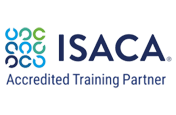Unable to find what you're searching for?
We're here to help you find itCET Cloud Fundamentals Course Overview
The Cloud Fundamentals Certificate certification is a validation of an individual's basic understanding of cloud services and how they provide value to businesses. This certification covers fundamental concepts like Cloud infrastructure, Deployment models, key Cloud applications, and the economic and governance aspects of Cloud Computing. Recognized across multiple industries, the certificate is often used to verify a professional’s knowledge, primarily in IT and data analysis roles. From commercial to nonprofit sectors, it helps organizations identify competent personnel to handle cloud-related tasks, bolstering their digital transformation journey, and improving their flexibility, scalability, and cost-effectiveness.
Purchase This Course
USD
View Fees Breakdown
| Course Fee | 2,340 |
| Exam Fee | 150 |
|
Total Fees (without exam) |
2,340 (USD) |
USD
View Fees Breakdown
| Course Fee | 1,800 |
| Exam Fee | 150 |
|
Total Fees (without exam) |
1,800 (USD) |
USD
View Fees Breakdown
| Flexi Video | 16,449 |
| Official E-coursebook | |
| Exam Voucher (optional) | |
| Hands-On-Labs2 | 4,159 |
| + GST 18% | 4,259 |
|
Total Fees (without exam & Labs) |
22,359 (INR) |
|
Total Fees (with Labs) |
28,359 (INR) |
Select Time
Select Date
| Day | Time |
|---|---|
|
to
|
to |
♱ Excluding VAT/GST
You can request classroom training in any city on any date by Requesting More Information
Inclusions in Koenig's Learning Stack may vary as per policies of OEMs
Scroll to view more course dates
You can request classroom training in any city on any date by Requesting More Information
♱ Excluding VAT/GST
*Inclusions in Koenig's Learning Stack may vary as per policies of OEMs
Suggestion submitted successfully.
Koenig Learning Stack
Inclusions in Koenig's Learning Stack may vary as per policies of OEMs



